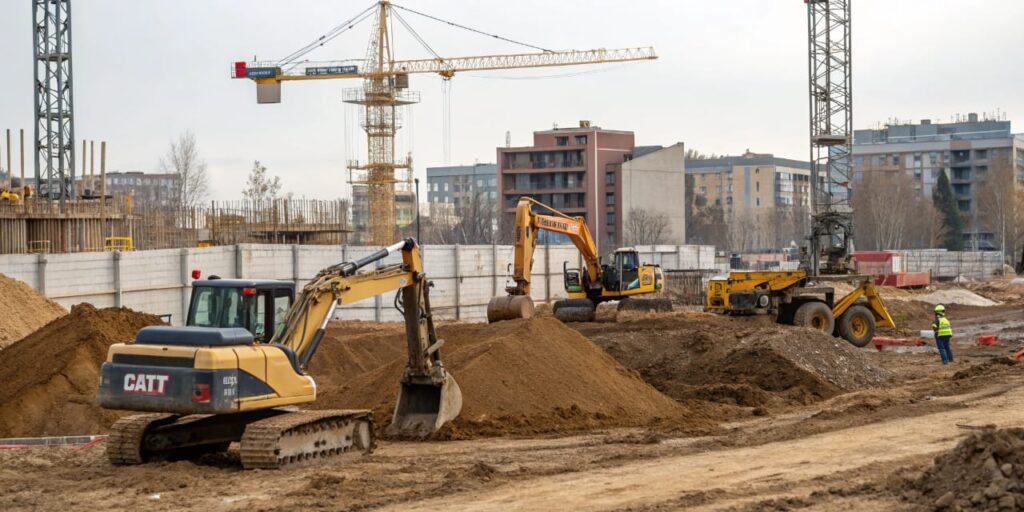
Choosing the right crushing equipment can make or break your project’s efficiency and profitability. Whether you’re working on a residential demolition, highway reconstruction, or a long-term aggregate production site, the question remains: mobile jaw crushers vs stationary—which is better for your operation?
Each type of crusher has its strengths and ideal use cases. Some contractors prefer the flexibility of a mobile jaw crusher that can be towed or tracked to multiple job sites, while others need the heavy-duty consistency of a stationary unit built for high-output applications.
In this article, we’ll compare mobile vs stationary jaw crushers, weigh their advantages and trade-offs, and help you determine which setup best suits your needs.
Understanding the Basics: Mobile vs Stationary Jaw Crushers
Before we dive into performance, let’s define the two:
- Mobile jaw crushers are portable crushing machines mounted on wheels or tracks. They can be moved between or around job sites and are typically self-contained with their own power and conveyor systems.
- Stationary jaw crushers are permanently installed at a fixed location—usually as part of a larger crushing plant or quarry setup. They require external infrastructure and are designed for continuous, high-capacity production.
Choosing between the two comes down to one thing: what kind of work you do, and where.
Mobile Jaw Crushers: Built for Flexibility and Fast-Paced Work
Mobile jaw crushers are a popular solution for contractors working on short-term or remote projects. Designed to deliver power in a portable package, they’re commonly used in:
- Urban demolition
- Road and bridge construction
- Utility and pipeline trenching
- Small-to-mid-scale aggregate production
- Disaster response and cleanup
Benefits of Mobile Jaw Crushers:
✅ Portability and Rapid Deployment
With no foundation or fixed setup required, mobile crushers can be deployed in hours—not days or weeks. This makes them perfect for contractors who need to get in, crush, and get out quickly.
✅ Cost-Effective for Multiple Job Sites
If you work in multiple locations, mobile crushers allow you to bring crushing power directly to each site—cutting hauling costs and reducing reliance on outside aggregate suppliers.
✅ Compact Size for Tight Access Jobs
Many mobile units are small enough to navigate alleyways, rural roads, or tight job sites that stationary equipment could never reach.
✅ Integrated Systems
Modern mobile crushers come equipped with onboard screens, discharge conveyors, and dust control—making them self-contained crushing solutions.
Stationary Jaw Crushers: Power and Durability for High-Volume Jobs
If your operation focuses on long-term crushing with consistent demand and minimal relocation, a stationary crushing plant may be the better fit.
Stationary jaw crushers are ideal for:
- Quarrying
- Mining
- High-volume concrete recycling
- Cement or asphalt plant material prep
- Long-term infrastructure projects
Benefits of Stationary Jaw Crushers:
✅ Higher Capacity and Throughput
Built for continuous, heavy-duty use, stationary units typically have higher output rates and can handle larger feed sizes than mobile crushers.
✅ Lower Long-Term Operating Costs
While the upfront investment is higher and installation takes more time, stationary plants often cost less to operate over time thanks to higher efficiency and lower fuel consumption.
✅ Customization and Scalability
Stationary systems can be fully customized with multiple crushing stages, integrated screening, wash systems, and conveyors—ideal for large-scale aggregate production.
✅ Robust Design
With solid frames and fewer moving parts, these crushers often last longer and are easier to maintain in high-volume settings.
Choosing the Right Jaw Crusher for Your Operation
To determine which option is best for your project, consider the following:
🔹 Job Duration and Location
- If you’re working on a short-term job or moving between multiple locations, a portable crushing equipment setup with a mobile jaw crusher is ideal.
- If your site is fixed for years and output is consistent, go with a stationary unit.
🔹 Space and Accessibility
- Mobile units are best for job sites with limited space or restricted access.
- Stationary units require space for infrastructure, feeding systems, and foundations.
🔹 Production Volume
- For large-scale aggregate production and high-throughput crushing, stationary crushers typically offer greater capacity.
- Smaller, mobile crushers can handle 20–300 TPH, depending on the model—sufficient for most mid-sized jobs.
🔹 Budget and Ownership Model
- Mobile units offer a lower upfront cost and are often available for rent.
- Stationary systems require significant capital investment but pay off in long-term, high-yield operations.
When to Use a Hybrid Approach
Many larger contractors use both types depending on the scope of work. For example:
- A stationary crusher handles bulk material at a central quarry.
- A mobile crusher processes material closer to job sites to minimize transport and support smaller crews.
This hybrid setup offers the best of both worlds—centralized production capacity with flexible on-site capabilities.
Conclusion: Match Your Crusher to Your Workflow
There’s no one-size-fits-all answer in the mobile jaw crushers vs stationary debate. It’s all about matching equipment to your project needs, production goals, and budget.
If you’re a contractor looking for portability, fast setup, and site-to-site flexibility, a mobile jaw crusher is your go-to solution. On the other hand, if you’re running a high-volume, fixed-site operation with long-term goals, a stationary jaw crusher will give you the power, stability, and scale you need.
Evaluate your workflow, weigh the pros and cons, and choose the crusher setup that will help you crush costs and boost productivity.